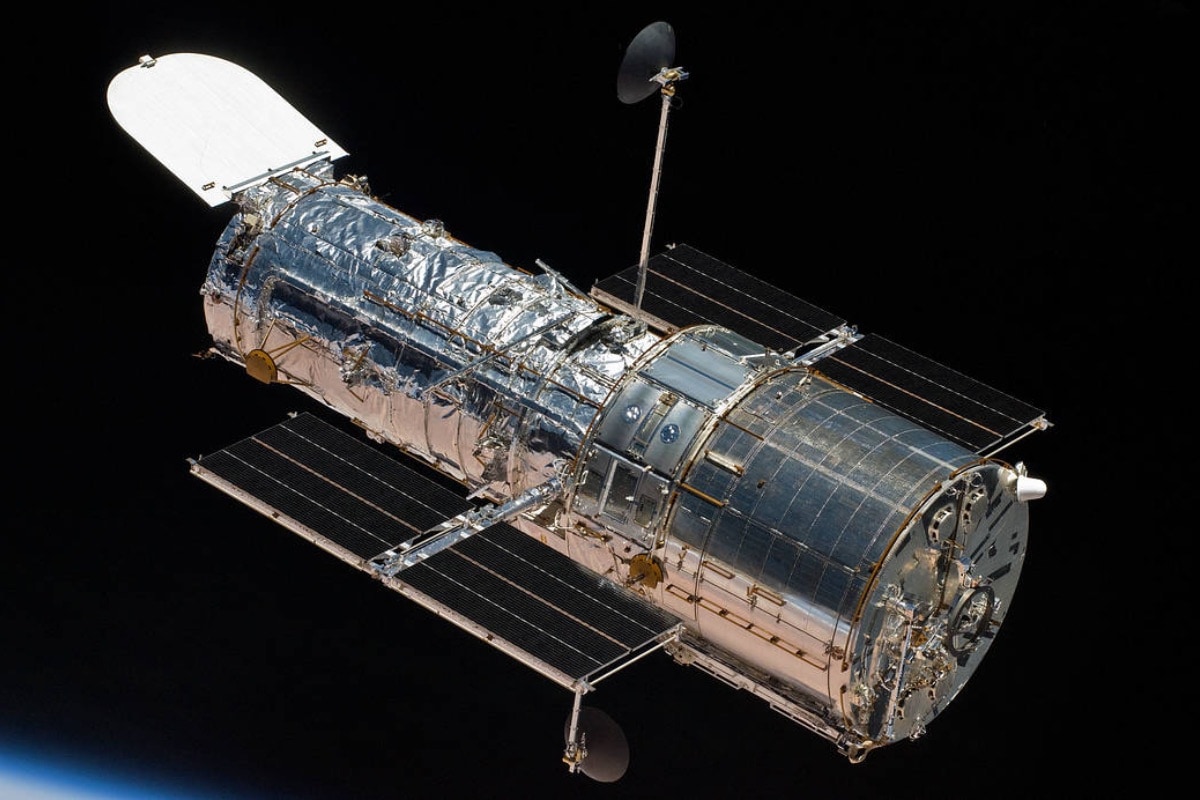
Nationwide Aeronautics and House Administration’s (NASA’s) Hubble House Telescope captured a collection of images of asteroid Dimorphos when it was intentionally hit by a 1,200-pound NASA spacecraft referred to as DART on September 26, 2022, in response to their assertion.
Hubble’s time-lapse film of the aftermath of DART’s collision reveals shocking and memorable, hour-by-hour modifications as mud and chunks of particles have been flung into area, NASA mentioned of their statement.
Smashing head on into the asteroid at 13,000 miles per hour, the DART impactor blasted over 1,000 tons of mud and rock off of the asteroid.
The Hubble film presents invaluable new clues into how the particles was dispersed into a posh sample within the days following the impression, NASA mentioned.
This was over a quantity of area a lot bigger than might be recorded by the LICIACube cubesat, which flew previous the binary asteroid minutes after DART’s impression, they mentioned.
The first goal of DART, which stands for Double Asteroid Redirection Take a look at, was to check our means to change the asteroid’s trajectory because it orbits its bigger companion asteroid, Didymos, the company mentioned.
Although neither Didymos nor Dimorphos poses any menace to Earth, information from the mission will assist inform researchers tips on how to doubtlessly divert an asteroid’s path away from Earth, if ever essential, the assertion mentioned.
The DART experiment additionally offered contemporary insights into planetary collisions which will have been frequent within the early photo voltaic system.
“The DART impression occurred in a binary asteroid system. We have by no means witnessed an object collide with an asteroid in a binary asteroid system earlier than in actual time, and it is actually shocking.
“I believe it is incredible. An excessive amount of stuff is happening right here. It may take a while to determine,” mentioned Jian-Yang Li of the Planetary Science Institute in Tucson, Arizona.
The research, led by Li together with 63 different DART staff members, was revealed on March 1 within the journal Nature.
The film reveals three overlapping levels of the impression aftermath: the formation of an ejecta cone, the spiral swirl of particles caught up alongside the asteroid’s orbit about its companion asteroid, and the tail swept behind the asteroid by the strain of daylight, resembling a windsock caught in a breeze, the assertion mentioned.
The assertion described that the Hubble film begins at 1.3 hours earlier than impression.
On this view each Didymos and Dimorphos are throughout the central shiny spot; even Hubble cannot resolve the 2 asteroids individually.
The skinny, straight spikes projecting away from the middle (and seen in later pictures) are artifacts of Hubble’s optics.
The primary post-impact snapshot is 2 hours after the occasion.
Particles flies away from the asteroid, shifting with a variety of speeds sooner than 4 miles per hour, quick sufficient to flee the asteroid’s gravitational pull, so it doesn’t fall again onto the asteroid, the assertion mentioned.
The ejecta varieties a largely hole cone with lengthy, stringy filaments.
At about 17 hours after the impression the particles sample entered a second stage.
The dynamic interplay throughout the binary system begins to distort the cone form of the ejecta sample, the assertion described.
Essentially the most outstanding constructions are rotating, pinwheel-shaped options. The pinwheel is tied to the gravitational pull of the companion asteroid, Didymos.
“That is actually distinctive for this explicit incident,” mentioned Li. “Once I first noticed these pictures, I could not imagine these options. I believed possibly the picture was smeared or one thing.” Hubble subsequent captures the particles being swept again right into a comet-like tail by the strain of daylight on the tiny mud particles, the assertion mentioned.
This stretches out right into a particles prepare the place the lightest particles journey the quickest and farthest from the asteroid. The thriller is compounded later when Hubble data the tail splitting in two for just a few days, the assertion mentioned.
A large number of different telescopes on Earth and in area, together with NASA’s James Webb House Telescope and Lucy spacecraft, additionally noticed the DART impression and its outcomes.
This Hubble film is a part of a set of latest research revealed within the journal Nature in regards to the DART mission.
For particulars of the newest launches and information from Samsung, Xiaomi, Realme, OnePlus, Oppo and different corporations on the Cellular World Congress in Barcelona, go to our MWC 2023 hub.
















